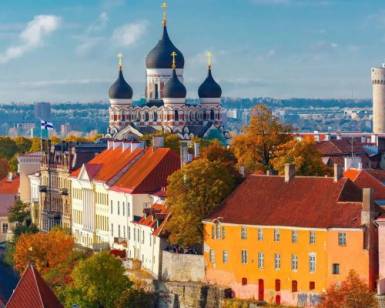Higher Education system in Estonia
 Posted date: 19 Sep 2022
Posted date: 19 Sep 2022
Study in Estonia is one of higher education's undiscovered gems. The East European nation features highly regarded universities, reasonably priced tuition, and one of the best air qualities due to its lovely forests, which are always within 30 minutes of any location.
There are two branches to the higher education system to study in estonia: the academic branch and the professional branch. The general organization of academic study has 3 levels or cycles. The Bachelor's degree is the initial level of education, followed by the Master's degree. A doctoral study is the third and highest level.
Three to four years is the typical length of time for completing a bachelor's degree, and 180 to 240 European Credit Transfer System credits are the recommended study loads in most curricula. Obstetrics is an exception, where the typical study time is four and a half years. The study outcomes for European bachelor's degrees and higher-level professional studies are the same as those listed for the sixth level of the Estonian and European qualification frameworks. Three to four years is the typical length of time for completing a European bachelor's degree, and 180 to 240 European Credit Transfer System credits are the recommended study loads in most curricula. Obstetrics is an exception, where the typical study time is four and a half years. The study outcomes for bachelor's degrees and higher-level professional studies are the same as those listed for the sixth level of the Estonian and European qualification frameworks.
As a result, students have two options for first-cycle higher education curricula:
• In a theory-based Bachelor's curriculum, practical skills are developed on the basis of theoretical concepts; curricula presume excellent general education knowledge.
• In professional higher education courses centered on practical training, theoretical knowledge is generated primarily on the basis of practical needs: At least 15% of curricula include practical work (including training in a working environment).
Master's study is the second level (cycle) of higher education study in which a student strengthens his or her specialized knowledge and skills while also acquiring knowledge and skills required for autonomous work and Doctoral research. The typical length of a Master's program is one to two years, with a study load of 60 to 120 ECTS credits. The normal length of time for completing a Bachelor's and Master's degree together must be at least five years, and the recommended study load is 300 ECTS credits. The length of a second-level Master's curriculum does not often differ according to specialties in the Estonian higher education system.
Doctoral studies are the highest degree of higher education study in which a student gets the information and abilities required for autonomous research, development, and professional creative work. The doctoral study entails coursework, extensive research, development, or other creative work that must account for at least 70% of the curriculum's total content. A doctoral thesis is characterized as either original creative work or an independent scientific study that offers a novel solution to a significant issue within the relevant scientific discipline. The academic component of doctoral study comprises general and specialized coursework as well as electives; the quantity of these courses varies slightly among universities' doctoral curricula.
Posted By

GSP Admin




